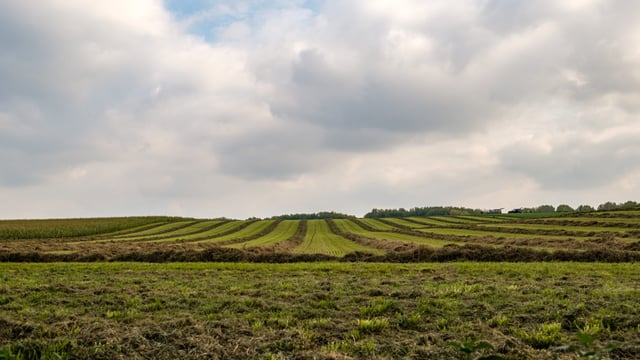What are Denmark's agri priorities during EU Council presidency?
Denmark has taken over the six-month rotating presidency of the Council of the EU, and will hold that role until December 31.
When a new country takes over the presidency of the council, this normally comes with a slight shift in policies and priorities within the council.
This is important because the relevant minister in a particular area for the presidency country chairs the meetings of all EU ministers in that area for the council.
In other words, the Danish agriculture minister will chair the meetings of agriculture ministers in the council until December.
The council is described in the EU treaties as a "co-legislator", meaning it has a role in amending and adopting legislative proposals from the European Commission.
This gives the council presidency sway in determining the direction of travel for the council in how it approaches new legislative proposals and negotiations with the European Parliament on final legislative texts.
One of the first legislative matters that the Danish presidency will have to deal with is the initial proposals from the European Commission on the new EU long-term budget, the Multiannual Financial Framework (MFF).
Proposals on the MFF are expected next week, and with those an indication on how the new Common Agricultural Policy (CAP) will look, amid concerns from farm organisations that it will be radically overhauled to the point that there may no longer be a dedicated, ring-fenced fund for agriculture.
While Denmark will not hold the presidency when the next CAP is finalised - that is likely to be Ireland - it will get the ball rolling on the proposals in the second half of this year.
The Danish presidency has outlined its priorities in a policy document for its six-month term, including its priorities for agriculture, and CAP specifically.
The country said it wants to focus on a "green, simple, and market-orientated Common Agricultural Policy that supports climate and environmental measures while strengthening competitiveness and innovation".
Denmark also intends to "conclude negotiations" on the agricultural simplification package.
"The presidency will be prepared to commence negotiations on the Common Agricultural Policy, setting the framework for the development of the agricultural sector after 2027," the policy document says.
It adds: "The future Common Agricultural Policy must support rural development, organic farming, generational renewal, and animal welfare, while ensuring greater coherence with sectoral legislation, including climate and environmental regulations."
Outside of CAP, the Danes also say they want to strengthen the position of farmers in the food supply chain by "concluding negotiations on unfair cross-border trade practices".
"Focus will be placed on attaining a well-functioning EU food chain based in a single market with a level playing field."
However, the policy document also states that the Danish presidency will also focus on developing "a common EU action plan for plant-based foods".
The presidency also intends to put animal welfare high on its agenda, by advancing negotiations on the proposal relating to the protection of animals during transportation.
After Denmark's presidency ends on December 31, it will then by Cyprus' turn for six months, and then Ireland in the second half of 2026.
While each country holds the presidency for six months, countries also work together in 'trios' - three countries holding the presidency one after the other who co-operate to set longer term objectives outside of the six-month period.
Denmark is the middle country of the current trio and Cyprus will be the last. This means that Ireland will be the first country of a new trio, with Lithuania and Greece set to follow Ireland's presidency.
Notably, this may give Ireland an opportunity to set the pace for new longer term objectives in the Council of the EU from the middle of next year, including on CAP, which is likely to be finalised during Ireland's presidency as it must come into effect from 2027.





